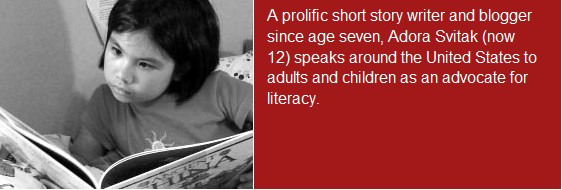Vlan trunk 实验报告
实验名称:vlan trunk 实验
实验目标:练习vlan的划分,把接口划入vlan,配置trunk口
验证trunk口通信
用实验验证交换机间用access - access口连接也可以通信
网络拓扑图:
Trunk - trunk

Access - access

实验步骤:
1. 画出网络拓扑图
2. 在拓扑图上标记路由器、交换机名称和具体接口,路由器接口IP地址,以及把接口划入vlan
3. 根据拓扑图连接相应接口
4. 检查线路是否导通
5. 打开SecureCRT,用telnet登陆访问服务器,经服务器进入对应的console口登陆交换机、路由器
6. 路由器去掉路由功能no ip routing模拟PC
7. 划分vlan,把接口划入vlan;配置连接交换机的接口类型;给路由器接口配置IP 地址
8. 用ping命令测试能否ping通
配置:
trunk - trunk
R1(config)#no ip routing 用路由器去掉路由功能后模拟PC
R1(config)#interface e0/0
R1(config-if)#ip address 192.168.0.9 255.255.255.0 进入e0/0接口并配置IP地址
R1(config-if)#no shutdown
R2(config)#no ip routing
R2(config)#interface e0/0
R2(config-if)#ip address 192.168.0.10 255.255.255.0 同上
R2(config-if)#no shutdown
sw1(config)#interface f0/1
sw1(config-if)#switchport mode trunk 进入f0/1,设成trunk模式
sw1#vlan database 进入vlan数据库模式
sw1(vlan)#vlan 2
VLAN 2 added: 添加vlan2
Name: VLAN0002
sw1(vlan)#vlan 2 name baolonggansw1
VLAN 2 modified:
Name: baolonggansw1
sw1(vlan)#exit 退出,保存
APPLY completed.
Exiting....
sw1(config)#interface f0/2
sw1(config-if)#switchport access vlan 2 把接口f0/2划入vlan2
sw2(config)#interface f0/1
sw2(config-if)#switchport mode trunk 进入f0/1,设成trunk模式
sw2#vlan database 进入vlan数据库模式
sw2(vlan)#vlan 2 name baolonggangsw2
VLAN 2 added:
Name: baolonggangsw2 添加vlan2
sw2(vlan)#exit 保存退出
APPLY completed.
Exiting....
sw2(config)#interface range f0/2
sw2(config-if-range)#switchport access vlan 2 把接口f0/2划入vlan2
access - access
r1(config)#no ip routing
r1(config)#interface e0/0
r1(config-if)#ip address 192.168.1.9 255.255.255.0 在R1上配 IP 192.168.1.9/24
r1(config-if)#no shutdown
r2(config)#no ip routing
r2(config)#interface e0/0
r2(config-if)#ip address 192.168.0.10 255.255.255.0 在R2 上配 IP 192.168.0.10/24
r2(config-if)#no shutdown
sw1#vlan database
sw1(vlan)#vlan 3 name three
VLAN 3 added:
Name: three sw1上添加vlan3
sw1(vlan)#exit
APPLY completed.
Exiting....
sw1(config)#interface range f0/0 - 2
sw1(config-if-range)#switchport access vlan 3
sw2#vlan database
sw2(vlan)#vlan 4 name four
VLAN 4 added: sw2上添加vlan4
Name: four
sw2(vlan)#exit
APPLY completed.
Exiting....
sw2(config)#interface range f0/0 - 3
sw2(config-if-range)#switchport access vlan 4
测试:
trunk - trunk
R1#ping 192.168.0.10 在R1上ping R2能通
Type escape sequence to abort.
Sending 5, 100-byte ICMP Echos to 192.168.0.10, timeout is 2 seconds:
!!!!!
Success rate is 100 percent (5/5), round-trip min/avg/max = 96/144/220 ms
R2#ping 192.168.0.9 在R2上ping R1也能通
Type escape sequence to abort.
Sending 5, 100-byte ICMP Echos to 192.168.0.9, timeout is 2 seconds:
!!!!!
Success rate is 100 percent (5/5), round-trip min/avg/max = 96/151/280 ms
access - access
r1#ping 192.168.0.10 不同vlan经access口可通信
Type escape sequence to abort.
Sending 5, 100-byte ICMP Echos to 192.168.0.10, timeout is 2 seconds:
!!!!!
Success rate is 100 percent (5/5), round-trip min/avg/max = 68/150/308 ms
r2#ping 192.168.1.9
Type escape sequence to abort.
Sending 5, 100-byte ICMP Echos to 192.168.1.9, timeout is 2 seconds:
!!!!!
Success rate is 100 percent (5/5), round-trip min/avg/max = 44/93/188 ms
总结:
认识路由器,交换机的各种接口;登陆路由器交换机进行vlan配置,了解做实验过程
第二篇:Adora Svitak-What adults can learn from kids
What adults can learn from kids

A voracious reader from age three, Adora Svitak's first serious foray into writing -- at age five -- was limited only by her handwriting and spelling. (Her astonishing verbal abilities already matched that of young adults over twice her age.) As her official bio says, her breakthrough would soon come "in the form of a used Dell laptop her mother bought her." At age seven, she typed out over 250,000 words -- poetry, short stories, observations about the world -- in a single year.
Svitak has since fashioned her beyond-her-years wordsmithing into an inspiring campaign for literacy -- speaking across the country to both adults and kids. She is author of Flying Fingers, a book on learning.
"A tiny literary giant." ---Diane Sawyer, Good Morning America
Now, I want to start with a question: When was the last time you were called childish? For kids like me, being called childish can be a frequent occurrence. Every time we make irrational demands, exhibit irresponsible behavior, or display any other signs of being normal American citizens, we are called childish, which really bothers me. After all, take a look at these events: Imperialism and colonization, world wars, George W. Bush. Ask yourself: Who's responsible? Adults.
Now, what have kids done? Well, Anne Frank touched millions with her powerful account of the Holocaust, Ruby Bridges helped end segregation in the United States, and, most recently, Charlie Simpson helped to raise 120,000 pounds for Haiti on his little bike. So, as you can see evidenced by such examples, age has absolutely nothing to do with it. The traits the word childish addresses are seen so often in adults that we should abolish this age-discriminatory word when it comes to criticizing behavior associated with irresponsibility and irrational thinking.
(Applause)
Thank you.
Then again, who's to say that certain types of irrational thinking aren't exactly what the world needs? Maybe you've had grand plans before, but stopped yourself, thinking: That's impossible or that costs too much or that won't benefit me. For better or worse, we kids aren't hampered as much when it comes to thinking about reasons why not to do things. Kids can be full of inspiring aspirations and hopeful thinking, like my wish that no one went hungry or that everything were free kind of utopia. How many of you still dream like that and believe in the possibilities? Sometimes a knowledge of history and the past failures of utopian ideals can be a burden because you know that if everything were free, that the food stocks would become depleted, and scarce and lead to chaos. On the other hand, we kids still dream about perfection. And that's a good thing because in order to make anything a reality, you have to dream about it first.
In many ways, our audacity[1] to imagine helps push the boundaries of possibility. For instance, the Museum of Glass in Tacoma, Washington, my home state -- yoohoo Washington -- (Applause) has a program called Kids Design Glass, and kids draw their own ideas for glass art. Now, the resident artist said they got some of their best ideas through the program because kids don't think about the limitations of how hard it can be to blow glass into certain shapes. They just think of good ideas. Now, when you think of glass, you might think of colorful Chihuly designs or maybe Italian vases, but kids challenge glass artists to go beyond that into the realm[2] of broken-hearted snakes and bacon boys, who you can see has meat vision. (Laughter)
Now, our inherent wisdom doesn't have to be insiders' knowledge. Kids already do a lot of learning from adults, and we have a lot to share. I think that adults should start learning from kids. Now, I do most of my speaking in front of an education crowd, teachers and students, and I like this analogy. It shouldn't just be a teacher at the head of the classroom telling students do this, do that. The students should teach their teachers. Learning between grown ups and kids should be reciprocal[3]. The reality, unfortunately, is a little different, and it has a lot to do with trust, or a lack of it.
Now, if you don't trust someone, you place restrictions on them, right. If I doubt my older sister's ability to pay back the 10 percent interest I established on her last loan, I'm going to withhold her ability to get more money from me until she pays it back. (Laughter) True story, by the way. Now, adults seem to have a prevalently restrictive attitude towards kids from every "don't do that," "don't do this" in the school handbook, to restrictions on school internet use. As history points out, regimes become oppressive when they're fearful about keeping control. And, although adults may not be quite at the level of totalitarian regimes, kids have no, or very little, say in making the rules, when really the attitude should be reciprocal, meaning that the adult population should learn and take into account the wishes of the younger population.
Now, what's even worse than restriction is that adults often underestimate kids abilities. We love challenges, but when expectations are low, trust me, we will sink to them. My own parents had anything but low expectations for me and my sister. Okay, so they didn't tell us to become doctors or lawyers or anything like that, but my dad did read to us about Aristotle and pioneer germ fighters when lots of other kids were hearing "The Wheels on the Bus Go Round and Round." Well, we heard that one too, but "Pioneer Germ Fighters" totally rules. (Laughter)
I loved to write from the age of four, and when I was six my mom bought me my own laptop equipped with Microsoft Word. Thank you Bill Gates and thank you Ma. I wrote over 300 short stories on that little laptop, and I wanted to get published. Instead of just scoffing[4] at this heresy[5] that a kid wanted to get published, or saying wait until you're older, my parents were really supportive. Many publishers were not quite so encouraging. One large children's publisher ironically saying that they didn't work with children. Children's publisher not working with children? I don't know, you're kind of alienating[6] a large client there. (Laughter) Now, one publisher, Action Publishing, was willing to take that leap and trust me, and to listen to what I had to say. They published my first book, "Flying Fingers," -- you see it here -- and from there on, it's gone to speaking at hundreds of schools, keynoting[7] to thousands of educators, and finally, today, speaking to you.
I appreciate your attention today, because to show that you truly care, you listen. But there's a problem with this rosy picture of kids being so much better than adults. Kids grow up and become adults just like you. (Laughter) Or just like you, really? The goal is not to turn kids into your kind of adult, but rather better adults than you have been, which may be a little challenging considering your guys credentials, but the way progress happens is because new generations and new eras grow and develop and become better than the previous ones. It's the reason we're not in the Dark Ages anymore. No matter your position of place in life, it is imperative to create opportunities for children so that we can grow up to blow you away. (Laughter)
Adults and fellow TEDsters, you need to listen and learn from kids and trust us and expect more from us. You must lend an ear today, because we are the leaders of tomorrow, which means we're going to be taking care of you when you're old and senile[8]. No, just kidding. No, really, we are going to be the next generation, the ones who will bring this world forward. And, in case you don't think that this really has meaning for you, remember that cloning is possible, and that involves going through childhood again, in which case, you'll want to be heard just like my generation. Now, the world needs opportunities for new leaders and new ideas. Kids need opportunities to lead and succeed. Are you ready to make the match? Because the world's problems shouldn't be the human family's heirloom[9].
Thank you. (Applause) Thank you. Thank you.
[1] Audacity: brave but rude or shocking behaviour
[2] Realm: an area of activity, interest, or knowledge
[3] Reciprocal: mutual
[4] Scoff: to talk about sb/sth in a way that makes it clear that you think they are stupid or ridiculous
[5] Heresy: a belief or an opinion that is against the principles of a particular religion
[6] Alienate: to make sb less friendly or sympathetic towards you
[7] Keynote: set the basic tone of sth
[8] Senile: behaving in a confused or strange way, and unable to remember things, because of old age
[9] Heirloom: a valuable object that has belonged to the same family for many years
